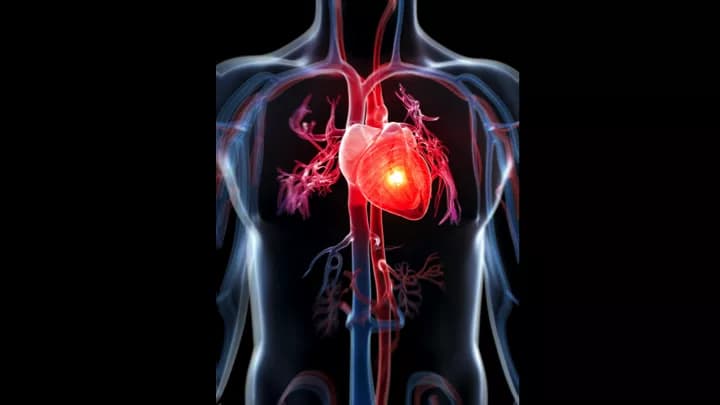About one in every nine men will experience sudden cardiac death, most before age 70, as well as about one in 30 women, according to research published in the Journal of the American Heart Association, the Open Access Journal of the American Heart Association/American Stroke Association.
Sudden cardiac death claims up to 450,000 American lives each year, according to the study and most commonly occurs in people with no prior symptoms of cardiovascular disease.
The current study offers the first lifetime risk estimates for sudden cardiac death.
"These numbers should raise a red flag," said Donald Lloyd-Jones, M.D., Sc.M., senior study author and chair of preventive medicine at Northwestern University Feinberg School of Medicine in Chicago, Illinois. "We often screen for conditions that are less common and much less deadly than sudden cardiac death. For instance, the lifetime risk for colon cancer is about one in 21, and for this reason everyone over the age of 50 is told to have a colonoscopy. But by comparison, the lifetime risk of sudden cardiac death for men is one in nine, and yet we're not really screening for it."
Lloyd-Jones and colleagues examined long-term data on more than 5,200 men and women aged 28 to 62 who were free of cardiovascular disease at the time of their enrollment in the Framingham Heart Study, a decades-long cardiovascular study. Focusing on four major risk factors -- blood pressure, total cholesterol, smoking, and diabetes -- researchers calculated overall cumulative lifetime risk estimates for sudden cardiac death, and estimates according to risk factor burden.
They found:
- sudden cardiac death occurred in 375 people during follow up;
- sudden cardiac death risk was greater for men than women -- with an overall 10.9 percent lifetime risk among all men at age 45 (roughly one in nine men) and a 2.8 percent lifetime risk of among all women at age 45 (or about one in 30 women);
- men with two or more major risk factors at all ages had even higher lifetime risks for of at least 12 percent (or more than one in eight men);
- high blood pressure alone or a combination of other cardiovascular risk factors was associated with higher lifetime risk of
- high blood pressure levels helped identify lifetime risk of smore accurately in both men and women than any other single risk factor.
Although sudden cardiac death is a leading cause of death in the United States, the previous methods for predicting its risk in a person's lifetime have been partly successful, missing many people who ultimately succumb to it, researchers said.
"Sudden cardiac death has been very hard to study because most patients had no history of heart problems and were not being monitored at the time of their death," Lloyd-Jones said. "The majority of all cases occur before age 70; this is obviously sudden and devastating for families, with a burden that can be quite severe.
Our paper sets the stage for thinking about how we can screen the population effectively to find out who's at risk," he said.
The Framingham Heart Study provides robust data due to its large number of well-characterized participants and long follow-up time, but because all the participants were Caucasian, the results cannot necessarily be applied in other races or ethnic groups, researchers said.
The above post is reprinted from materials provided by American Heart Association. Note: Materials may be edited for content and length.
Disclaimer: DoveMed is not responsible for the adapted accuracy of news releases posted to DoveMed by contributing universities and institutions.
Primary Resource:
Bogle, B. M., Ning, H., Mehrotra, S., Goldberger, J. J., & Lloyd‐Jones, D. M. (2016). Lifetime Risk for Sudden Cardiac Death in the Community. Journal of the American Heart Association, 5(7), e002398.
Related Articles
Test Your Knowledge
Asked by users
Related Centers
Related Specialties
Related Physicians
Related Procedures
Related Resources
Join DoveHubs
and connect with fellow professionals


0 Comments
Please log in to post a comment.